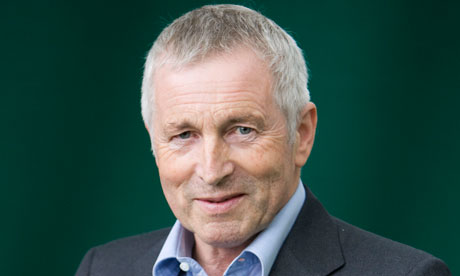Tripoli: His name of choice was the Brother Leader, though his nearly 42 years of rule were rarely brotherly, and his leadership left one of the world’s most richly endowed countries in shambles.
Now, as the former subjects of Muammar Gaddafi comb through his family’s mansions, farms and seaside villas, the properties are revealing the details of lives lived far removed from the people, ones filled with the signs of their peccadilloes and rivalries.
At one farm, horses wandered by marble statues of lions, tigers and bears, and reindeers grazed by the wood deck of an empty pool. At the home of one son, Sa’adi, there were signs of a life mundane in its seeming frustration. A man who drifted through stints as an athlete, soldier and Hollywood movie producer, Sa’adi kept the English language self-help book Success Intelligence in his master bedroom. Given Gaddafi’s noted flamboyance, the residences of the House of Gaddafi were not quite as grand as people might minor have supposed.
Faux grandeur
They lacked the faux grandeur of Saddam Hussain’s marbled palaces. There are no columns that bear the Gaddafi’s initials, or fists cast in replica of his hands, or river-fed moats with voracious carp.
“For somebody who’s very rich, he was very cheap,” said resident Fuad Gritli, as he drove through a sprawling parcel near the airport known as the Farm, where Gaddafi lived.
In the sanctum of the Farm, there are rolling, irrigated fields. Camels wandered unattended. Still standing was a tent where he met foreign dignitaries, its canvas decorated in pictures of camels and palm trees. “We weren’t allowed to get anywhere near, not even the gate,” Gritli said. “Gaddafi was not living like a rich man, I admit that, said Malek Al Bakouri, a 27-year-old doctor from Tripoli, as he drove past a guest house where water cascaded from a broken pipe in a city suffering from a shortage of it. “But his sons, all the people in his tribe, and all the families around him lived good, and they lived good for 40 years.”
Gaddafi's sons’ behaviour would have made a reality show proud — Sa’adi was a professional soccer player, and Hannibal repeatedly had brushes with the law in Europe. But the sons’ villas on a sand bluff overlooking the Mediterranean had a distinctly 1970s feel. They were not lavish; the brown paint on the patio decks was peeling. But to the young fighters roaming through Hannibal’s quarters — furnished overwhelmingly in whites and blacks, and ringed with plastic grass — there was just enough luxury to inspire envy. “We’ve got to take this over!” said Bahaeddin Zintani, a 23-year-old revolutionary who took turns with his brother lying in bed and posing for pictures before a home gym fitted with a mirror. “This is the first time I’ve even seen anything like this.”
On a black granite bar, there were cases for Johnnie Walker Blue Label and Dom Perignon Rose, all empty.
Muatassim, the fourth-eldest Gaddafi son and the country’s national security adviser, surrounded himself with more luxury. He regularly arrived in a convoy of cars to a farmhouse in the Ain Zara neighbourhood of Tripoli protected by high walls and gates on four sides that were made to look like cinder-block walls. A driveway with a fountain featuring four-horse drawn carriages, and then, an ostentatious pool bungalow, with Roman columns at the entrance and topped by gold domes that looked like Hershey Kisses.
Amid the scattered shards of gilded furniture were relics of Sa’adi’s mundane if coddled life: directions for a battery-powered Barbie doll, mermaid floats that children must have played with in the swimming pool out back, a phrase book of English vocabulary for the finance business. Through his long reign, Gaddafi posed as an ever-struggling revolutionary, his ideas encapsulated in The Green Book. (In one memorable passage, he defended freedom of expression, even if a person chooses “to express his or her insanity.”) But the avowed simplicity never matched his lifestyle, prone as he was to epaulets, billowing robes and shirts emblazoned with green maps of Africa. His all-female contingent of guards was supposedly sworn to celibacy.
At Muammar Gaddafi’s residence in Bab Al Aziziya, his fortress-like preserve in the heart of Tripoli, there was a white binder with hundreds of pages of clippings about him. Graffiti on a wall nearby taunted the Brother Leader, now nicknamed for another distinguishing trait: unmanageable grooming. “Where’s the guy with the crazy hair?” it said.





 Palestinian leader Mahmoud Abbas has submitted his bid to the UN for recognition of a Palestinian state. To rapturous applause in the General Assembly, he urged the Security Council to back a state with pre-1967 borders. He said the Palestinians had entered negotiations with Israel with sincere intentions, but blamed the building of Jewish settlements for their failure. Israeli PM Benjamin Netanyahu said he was reaching out to Palestinians and blamed them for refusing to negotiate. "I continue to hope that President Abbas will be my partner in peace," he said in his speech in New York. "Let's meet here today in the United Nations. Who's there to stop us?" Mr Netanyahu added that the core of the conflict was not settlements but the refusal of the Palestinians to recognise Israel as a Jewish state. Hours after receiving it, UN Secretary-General Ban Ki-moon transmitted the Palestinian request to the Security Council. Israel and the US say a Palestinian state can only be achieved through talks with Israel - not through UN resolutions. 'Come to peace' President Barack Obama told Mr Abbas on Thursday that the US would use its UN Security Council veto to block the move. Continue reading the main story Analysis Jeremy Bowen BBC Middle East editor, New York Some delegations here at the UN in New York gave Palestinian Authority leader Mahmoud Abbas a standing ovation - they were clapping and even whistling in support. That is significant because if it comes to a vote in the Security Council - and if the Americans veto it - Palestinians have a Plan B. That Plan B is to go to the General Assembly - where there are no vetoes - and get enhanced status, not full membership but something better than they have now. The Palestinians say they want to negotiate but not in the way they have negotiated before - there has to be clear parameters and a timetable. The Palestinian point is that since 18 years of negotiation has not worked, let's try something new. "I call upon the distinguished members of the Security Council to vote in favour of our full membership," he told the General Assembly, in what was for him an unusually impassioned speech. He added that he hoped for swift backing. Many delegates gave him a standing ovation. "I also appeal to the states that have not yet recognised the State of Palestine to do so." "The time has come for my courageous and proud people, after decades of displacement and colonial occupation and ceaseless suffering, to live like other peoples of the earth, free in a sovereign and independent homeland," he said. He urged Israel to "come to peace". And he said the building of Jewish settlements was "the primary cause for the failure of the peace process". A spokesman for the Islamist movement Hamas, which controls the Gaza Strip, criticised the speech. Salah Bardawil said Mr Abbas had deviated from the aspirations of the Palestinian people by accepting the 1967 borders, which he said left 80% of Palestinian land inside Israel. 'Future and destiny' Meanwhile in the West Bank, crowds roared their approval as Mr Abbas demanded UN acceptance of a Palestinian state within pre-1967 borders. Continue reading the main story Middle East viewpoints Analyst Yezid Sayigh argues that US and Israeli policies have forced the Palestinians to resort to requesting full UN membership. Israeli commentator Yossi Klein Halevi argues that the Palestinians need to convince the Israelis that any state would not be a threat. "With our souls, with our blood, we will defend Palestine," they said. Mr Abbas had called for peaceful marches in support of his initiative, but some clashes were reported: One Palestinian was shot dead by Israeli troops during clashes in the village of Qusra, south of Nablus, Palestinian sources say At the Qalandiya checkpoint, Israeli troops fired tear gas on stone-throwing Palestinian youths In the village of Nabi Saleh, protesters burned Israeli flags and pictures of President Obama The process began with Mr Abbas presenting a written request for a State of Palestine to be admitted as a full UN member state to the UN secretary general. The BBC's Kim Ghattas at the UN says that until the last minute Western diplomats tried and failed to stop the Palestinians making the request. Even now, efforts are under way to restart direct talks between the Israelis and Palestinians in an attempt to defuse tensions, our correspondent says. The Security Council will examine it and vote on the request. In order to pass, it would need the backing of nine out of 15 council members, with no vetoes from the permanent members. A Security Council vote could take weeks to come about and the US may not even need to exercise its veto - Washington and Israel have been lobbying council members to either vote against the Palestinian plan or abstain. Continue reading the main story Palestinian UN membership bid Palestinians currently have permanent observer entity status at the UN They are represented by the Palestine Liberation Organisation (PLO) Officials now want an upgrade so a state of Palestine has full member status at the UN They seek recognition on 1967 borders - in the West Bank, including East Jerusalem, and Gaza Enhanced observer member status could be an interim option Q&A: Palestinians' UN statehood plans Why Obama has turned towards Israel French President Nicolas Sarkozy has urged a compromise, suggesting the General Assembly give the Palestinians enhanced status as a non-member state to allow a clear timeline for talks - a month to start negotiations, six months to deal with borders and security and a year to finalise a "definitive agreement". A vote on enhanced status - enjoyed by others such as the Vatican - would not require a Security Council recommendation but a simple majority in the General Assembly, where no veto is possible. Currently the Palestinians have observer status at the UN. The "Quartet" of US, European, Russian and UN mediators has been working on reaching a framework agreement to restart talks, based on Mr Obama's vision of borders fashioned from Israel's pre-1967 boundary, with agreed land swaps.
Palestinian leader Mahmoud Abbas has submitted his bid to the UN for recognition of a Palestinian state. To rapturous applause in the General Assembly, he urged the Security Council to back a state with pre-1967 borders. He said the Palestinians had entered negotiations with Israel with sincere intentions, but blamed the building of Jewish settlements for their failure. Israeli PM Benjamin Netanyahu said he was reaching out to Palestinians and blamed them for refusing to negotiate. "I continue to hope that President Abbas will be my partner in peace," he said in his speech in New York. "Let's meet here today in the United Nations. Who's there to stop us?" Mr Netanyahu added that the core of the conflict was not settlements but the refusal of the Palestinians to recognise Israel as a Jewish state. Hours after receiving it, UN Secretary-General Ban Ki-moon transmitted the Palestinian request to the Security Council. Israel and the US say a Palestinian state can only be achieved through talks with Israel - not through UN resolutions. 'Come to peace' President Barack Obama told Mr Abbas on Thursday that the US would use its UN Security Council veto to block the move. Continue reading the main story Analysis Jeremy Bowen BBC Middle East editor, New York Some delegations here at the UN in New York gave Palestinian Authority leader Mahmoud Abbas a standing ovation - they were clapping and even whistling in support. That is significant because if it comes to a vote in the Security Council - and if the Americans veto it - Palestinians have a Plan B. That Plan B is to go to the General Assembly - where there are no vetoes - and get enhanced status, not full membership but something better than they have now. The Palestinians say they want to negotiate but not in the way they have negotiated before - there has to be clear parameters and a timetable. The Palestinian point is that since 18 years of negotiation has not worked, let's try something new. "I call upon the distinguished members of the Security Council to vote in favour of our full membership," he told the General Assembly, in what was for him an unusually impassioned speech. He added that he hoped for swift backing. Many delegates gave him a standing ovation. "I also appeal to the states that have not yet recognised the State of Palestine to do so." "The time has come for my courageous and proud people, after decades of displacement and colonial occupation and ceaseless suffering, to live like other peoples of the earth, free in a sovereign and independent homeland," he said. He urged Israel to "come to peace". And he said the building of Jewish settlements was "the primary cause for the failure of the peace process". A spokesman for the Islamist movement Hamas, which controls the Gaza Strip, criticised the speech. Salah Bardawil said Mr Abbas had deviated from the aspirations of the Palestinian people by accepting the 1967 borders, which he said left 80% of Palestinian land inside Israel. 'Future and destiny' Meanwhile in the West Bank, crowds roared their approval as Mr Abbas demanded UN acceptance of a Palestinian state within pre-1967 borders. Continue reading the main story Middle East viewpoints Analyst Yezid Sayigh argues that US and Israeli policies have forced the Palestinians to resort to requesting full UN membership. Israeli commentator Yossi Klein Halevi argues that the Palestinians need to convince the Israelis that any state would not be a threat. "With our souls, with our blood, we will defend Palestine," they said. Mr Abbas had called for peaceful marches in support of his initiative, but some clashes were reported: One Palestinian was shot dead by Israeli troops during clashes in the village of Qusra, south of Nablus, Palestinian sources say At the Qalandiya checkpoint, Israeli troops fired tear gas on stone-throwing Palestinian youths In the village of Nabi Saleh, protesters burned Israeli flags and pictures of President Obama The process began with Mr Abbas presenting a written request for a State of Palestine to be admitted as a full UN member state to the UN secretary general. The BBC's Kim Ghattas at the UN says that until the last minute Western diplomats tried and failed to stop the Palestinians making the request. Even now, efforts are under way to restart direct talks between the Israelis and Palestinians in an attempt to defuse tensions, our correspondent says. The Security Council will examine it and vote on the request. In order to pass, it would need the backing of nine out of 15 council members, with no vetoes from the permanent members. A Security Council vote could take weeks to come about and the US may not even need to exercise its veto - Washington and Israel have been lobbying council members to either vote against the Palestinian plan or abstain. Continue reading the main story Palestinian UN membership bid Palestinians currently have permanent observer entity status at the UN They are represented by the Palestine Liberation Organisation (PLO) Officials now want an upgrade so a state of Palestine has full member status at the UN They seek recognition on 1967 borders - in the West Bank, including East Jerusalem, and Gaza Enhanced observer member status could be an interim option Q&A: Palestinians' UN statehood plans Why Obama has turned towards Israel French President Nicolas Sarkozy has urged a compromise, suggesting the General Assembly give the Palestinians enhanced status as a non-member state to allow a clear timeline for talks - a month to start negotiations, six months to deal with borders and security and a year to finalise a "definitive agreement". A vote on enhanced status - enjoyed by others such as the Vatican - would not require a Security Council recommendation but a simple majority in the General Assembly, where no veto is possible. Currently the Palestinians have observer status at the UN. The "Quartet" of US, European, Russian and UN mediators has been working on reaching a framework agreement to restart talks, based on Mr Obama's vision of borders fashioned from Israel's pre-1967 boundary, with agreed land swaps. France's fines on women for wearing the full-face covering niqab veil, imposed for the first time by a court on Thursday, are a "travesty of justice," Amnesty International says. Police have issued several on-the-spot fines since the ban came into force in April but the hearing saw the first two court-issued fines, and the Muslim women vowed to appeal their case all the way to the European Court of Human Rights. "This is a travesty of justice and a day of shame for France. These women are being punished for wearing what they want," Amnesty International's deputy director for Europe and Central Asia John Dalhuisen said in a statement. Advertisement: Story continues below "Instead of protecting women's rights, this ban violates their freedom of expression and religion." The court in the northern cheese-making town of Meaux ordered Hind Ahmas, 32, to pay a 120 ($A163) fine, while Najate Nait Ali, 36, was fined 80 euros. It did not order them to take a citizenship course, as the prosecutor had wanted. The women were arrested when they brought a birthday cake for local mayor and lawmaker Jean-Francois Cope, who is head of President Nicolas Sarkozy's right-wing UMP party that pushed through Europe's first anti-burqa law. France is not the only country to try to ban the Muslim full-face veil - Belgium and some Italian cities have similar laws, while other countries are planning to follow suit - so a European ruling could have broad effect. French officials estimate that only around 2,000 women, from a total Muslim population estimated at between four and six million, wear the full-face veils traditionally worn in parts of the Arab world and South Asia. Many Muslims and rights activists say the right-wing president is targeting one of France's most vulnerable groups to signal to anti-immigration voters that he shares their fear that Islam is a threat to French culture.
France's fines on women for wearing the full-face covering niqab veil, imposed for the first time by a court on Thursday, are a "travesty of justice," Amnesty International says. Police have issued several on-the-spot fines since the ban came into force in April but the hearing saw the first two court-issued fines, and the Muslim women vowed to appeal their case all the way to the European Court of Human Rights. "This is a travesty of justice and a day of shame for France. These women are being punished for wearing what they want," Amnesty International's deputy director for Europe and Central Asia John Dalhuisen said in a statement. Advertisement: Story continues below "Instead of protecting women's rights, this ban violates their freedom of expression and religion." The court in the northern cheese-making town of Meaux ordered Hind Ahmas, 32, to pay a 120 ($A163) fine, while Najate Nait Ali, 36, was fined 80 euros. It did not order them to take a citizenship course, as the prosecutor had wanted. The women were arrested when they brought a birthday cake for local mayor and lawmaker Jean-Francois Cope, who is head of President Nicolas Sarkozy's right-wing UMP party that pushed through Europe's first anti-burqa law. France is not the only country to try to ban the Muslim full-face veil - Belgium and some Italian cities have similar laws, while other countries are planning to follow suit - so a European ruling could have broad effect. French officials estimate that only around 2,000 women, from a total Muslim population estimated at between four and six million, wear the full-face veils traditionally worn in parts of the Arab world and South Asia. Many Muslims and rights activists say the right-wing president is targeting one of France's most vulnerable groups to signal to anti-immigration voters that he shares their fear that Islam is a threat to French culture. The National Transitional Council are investigating an unconfirmed report that Muammar Gaddafi has fled from Sabha, NTC spokesman reports. NTC spokesman also states that Libyan government forces now control most of Sabha with small pockets of resistance from pro-Gaddafi snipers.
The National Transitional Council are investigating an unconfirmed report that Muammar Gaddafi has fled from Sabha, NTC spokesman reports. NTC spokesman also states that Libyan government forces now control most of Sabha with small pockets of resistance from pro-Gaddafi snipers.
 Billionaire Ted Turner said News Corp. Chairman and Chief Executive Officer Rupert Murdoch will probably have to leave the helm of his media company after a phone-hacking scandal that began at one of its newspapers. "I think he's going to have to step down," Turner, 72, said in an interview on Bloomberg Television. "He hadn't survived anything like this. This is serious." News Corp., based in New York, has come under fire this year over allegations its News of the World tabloid hacked into the voice mails of murder victims and paid police for stories. The public outcry forced the company to close the 168-year-old London newspaper and drop its 7.8 billion-pound ($12.2 billion) bid for full control of British Sky Broadcasting Group Plc. Murdoch and his son James, deputy chief operating officer at News Corp., were called before U.K. parliament in July to answer questions about the scandal. The elder Murdoch's statements that he didn't know about phone-hacking or police payments aren't sufficient, Turner said. "Well, he should have known," said Turner, who sold his Atlanta-based Turner Broadcasting, owner of CNN, TBS and the Cartoon Network, to Time Warner Inc. in 1996. "He was chairman of the board. He's responsible. I took responsibility when I ran my company. You never heard me say, 'Well, I didn't know.'"
Billionaire Ted Turner said News Corp. Chairman and Chief Executive Officer Rupert Murdoch will probably have to leave the helm of his media company after a phone-hacking scandal that began at one of its newspapers. "I think he's going to have to step down," Turner, 72, said in an interview on Bloomberg Television. "He hadn't survived anything like this. This is serious." News Corp., based in New York, has come under fire this year over allegations its News of the World tabloid hacked into the voice mails of murder victims and paid police for stories. The public outcry forced the company to close the 168-year-old London newspaper and drop its 7.8 billion-pound ($12.2 billion) bid for full control of British Sky Broadcasting Group Plc. Murdoch and his son James, deputy chief operating officer at News Corp., were called before U.K. parliament in July to answer questions about the scandal. The elder Murdoch's statements that he didn't know about phone-hacking or police payments aren't sufficient, Turner said. "Well, he should have known," said Turner, who sold his Atlanta-based Turner Broadcasting, owner of CNN, TBS and the Cartoon Network, to Time Warner Inc. in 1996. "He was chairman of the board. He's responsible. I took responsibility when I ran my company. You never heard me say, 'Well, I didn't know.'"
 Fugitive Libyan leader Muammar Gadhafi was spotted in the southern city of Sabha a few days ago, the regional daily Asharq al-Awsat reported on Tuesday, citing an eyewitness. The witness claimed that Gadhafi was living in the city, located around 750 kilometers south of the capital Tripoli. Anti-Gadhafi fighters firing a cannon near Sirte, the hometown of deposed leader Muammar Gadhafi, September 17, 2011. Photo by: Reuters Gadhafi's whereabouts have been unknown since rebels took over Tripoli in August. However, he continues to send statements and voice messages through the Syria-based al-Rai channel. The report comes after the anti-Gadhafi rebels said they took over parts of Sabha city as well as its airport. "The airport of Sabha has been liberated by our fighters," a military spokesman, Colonel Ahmed Bani, said in Tripoli on Monday. "Also two villages near Sabha have been liberated." For around a week the rebels have been fighting pro-Gadhafi fighters, who have put up stiff resistance in his birthplace of Sirte and the desert town of Bani Walid, south-east of Tripoli. Almost a month after they overran Tripoli, the rebels are at pains to take control of the two strongholds before their leaders can declare all of the North African country "liberated."
Fugitive Libyan leader Muammar Gadhafi was spotted in the southern city of Sabha a few days ago, the regional daily Asharq al-Awsat reported on Tuesday, citing an eyewitness. The witness claimed that Gadhafi was living in the city, located around 750 kilometers south of the capital Tripoli. Anti-Gadhafi fighters firing a cannon near Sirte, the hometown of deposed leader Muammar Gadhafi, September 17, 2011. Photo by: Reuters Gadhafi's whereabouts have been unknown since rebels took over Tripoli in August. However, he continues to send statements and voice messages through the Syria-based al-Rai channel. The report comes after the anti-Gadhafi rebels said they took over parts of Sabha city as well as its airport. "The airport of Sabha has been liberated by our fighters," a military spokesman, Colonel Ahmed Bani, said in Tripoli on Monday. "Also two villages near Sabha have been liberated." For around a week the rebels have been fighting pro-Gadhafi fighters, who have put up stiff resistance in his birthplace of Sirte and the desert town of Bani Walid, south-east of Tripoli. Almost a month after they overran Tripoli, the rebels are at pains to take control of the two strongholds before their leaders can declare all of the North African country "liberated."





